- Home
- Deborah Smith
Miracle
Miracle Read online
RECKLESS PASSION
Amy caught Sebastien’s face between her hands and kissed him. He made a harsh sound but took everything she offered, then wound his arms around her and returned fierce, raw energy so erotic that she shuddered and moaned against his mouth. He pulled back. “I said that I wasn’t in the mood to be kind to you. There is too much going on inside me tonight. It makes me reckless. This can only hurt you. Now stop—”
“You don’t have to worry about hurting me, or make promises about the future, or say a lot of hokey sweet things. You just have to be yourself.”
“Most women would be dismayed at that possibility.”
“I never look at things the way other people do. I guess you’re in luck.”
He studied her with a troubled, heartbreaking expression, then shut his eyes for a moment, as if making a decision. “Very much in luck.”
He kissed her again, this time sweetly and with obvious restraint. She sagged against him. Bending her backwards, he laid her on the cool, matted grass and undressed her.…
BY DEBORAH SMITH
From Bantam Books
WHEN VENUS FELL
A PLACE TO CALL HOME
SILK AND STONE
BLUE WILLOW
MIRACLE
MIRACLE
A Bantam Book / November 1991
All rights reserved.
Copyright © 1991 by Deborah Smith.
No part of this book may be reproduced
or transmitted in any form or by any means, electronic or
mechanical, including photocopying, recording, or by any
information storage and retrieval system, without permission
in writing from the publisher.
For information address: Bantam Books.
eISBN: 978-0-307-79830-5
Bantam Books are published by Bantam Books, a division of Random House, Inc. Its trademark, consisting of the words “Bantam Books” and the portrayal of a rooster, is Registered in U.S. Patent and Trademark Office and in other countries. Marca Registrada. Bantam Books, 1540 Broadway, New York, New York 10036.
v3.1_r1
ACKNOWLEDGMENTS
Many thanks to the following for their help and support: Susan Hall Sheehan, segment producer, NBC; Claude Wegscheider of Alliance Francaise d’Atlanta, Inc.; Charles Andrews, director of Graduate Education, Emory University; Ellen Taber, R.N., B.S.N., surgical nurse; Barbara Croft, M.D.; my helpful and generous California family, Myra and Don Araiza; Laura Taylor, Pat Potter, and Carol Buckland; Andrea Cirillo and Gretchen van Nuys of the Jane Rotrosen Agency; Carolyn Nichols and Nita Taublib of Bantam Books; and Hank Smith, husband extraordinaire. This book is lovingly dedicated to my parents, Jack and Dora Brown.
Contents
Cover
Other Books by This Author
Title Page
Copyright
Acknowledgments
Prologue
Part One Chapter One
Chapter Two
Chapter Three
Chapter Four
Chapter Five
Chapter Six
Chapter Seven
Part Two Chapter Eight
Chapter Nine
Chapter Ten
Chapter Eleven
Part Three Chapter Twelve
Chapter Thirteen
Chapter Fourteen
Chapter Fifteen
Chapter Sixteen
Chapter Seventeen
Chapter Eighteen
Part Four Chapter Nineteen
Chapter Twenty
Chapter Twenty-One
Chapter Twenty-Two
Chapter Twenty-Three
Chapter Twenty-Four
Chapter Twenty-Five
Chapter Twenty-Six
Chapter Twenty-Seven
Epilogue
About the Author
“Y’all terrify the hell out of me. Really, truly terrify me. Amy Miracle said, her Georgia drawl putting a slow spin on each word. “Y’all look so … so normal.”
Most of the members of the well-dressed suburban audience laughed, as they were meant to. Inside the sleek taupe silk of her trousers, bought second hand at a funky Hollywood clothes shop, Amy’s knees quivered a little less. The bright stage light felt too hot on her face; the back of her neck was damp under her hair. She wore a loose red jacket over a white blouse because she didn’t want anyone to see the blouse clinging to her underarms, where trickles of nervous perspiration were already making their way down her sides.
She wasn’t kidding about the fear. She felt as if she were a bat flying in a dark cave emitting nervous vibrations through the packed club to gather feedback so she wouldn’t slam into a wall. But she had learned to make the fear work for her.
“It’s smart to be afraid of everything,” she said. “Only stupid people think it’s safe to relax.” Beyond the lip of the small stage, somewhere among tables loaded with wine coolers and nachos, a drunk cackled. Amy never missed a beat. “There’s one, now.”
She waited with practiced timing for the scattering of laughter and applause to fade. God, did she know how to wait. It had taken her years to get here. Pretending to study the small heart tattooed on her wrist, she frowned in thought. “I had a unique childhood, y’all understand. Tough. My Daddy’s idea of a home entertainment center was a gun rack and a refrigerator full of beer. But he was mellow, all right? If I forgot to clean up my room he’d say, ‘That’s okay. I’m just gonna wing ya this time.’ ”
Settling into the rhythm of her routine, she gave them a practiced look of bewilderment. “Being female makes you afraid, too. Stuff like going to the gynecologist. I always turn into Olive Oyl when I get there.” She did her Olive Oyl impression, clasping her throat in befuddled shock and wailing, “Oh, goodness, oh, my, oh, my! If Popeye had shivered his timber, I wouldn’t be in this predicament!”
Because her voice was so strange anyway, it fit the impression perfectly. Lots of people in the audience laughed now. Amy leaned toward the microphone as if she and the audience were companions in a conspiracy. A conspiracy against all the ugly, stupid, absurd things in the world. “Women have good reason to be suspicious and scared. Look how everybody lies to us. Like in douche commercials. A sweet little teenage girl asks her mother, ‘Mom, are there days when you just don’t feel as … as fresh as you’d like?’ I want the truth! I want to hear that girl ask, ‘Mom, do you ever feel like … like a tuna that’s been out of water too long?’ ”
Women in the audience hooted with glee. Men laughed behind their hands, nodding. The douche bit always struck a chord. It tipped the audience over the line from wary expectation to an affectionate level of camaraderie. The battle was half won. The worst was over. Amy listened to the laughter and sighed with relief. Every night she improved. This was torture, but she loved it. It was worth every painful step. “Well,” she added with a thoughtful pause, “I always say that if you can’t laugh at yourself, laugh at other people.”
She gave them five more minutes, building the momentum, not letting them have a moment’s rest, controlling them, killing them, and enjoying the sense of power she only found on stage. When the red light began blinking on the back wall of the club, signaling her that her time was up, she gave them one more minute and knew it was the best set she’d ever done.
She left the tiny stage on a crest of enthusiastic applause and calls for more. Floating, she stepped into a narrow hall hung with photos of comics, some famous, many she knew personally, a few she called friends.
The next performer, an acne-scarred young man with a smirking grin, was waiting in the hall. “Not bad. You warmed them up for me, Miracle.” He wiggled a lecherous hand puppet at her chest.
“You and Wally the Wonder Hand need all the help you can get. Don’t muss
the blouse—it’s a Kmart original.”
“God, it must be nice to have lots of money.”
“Right. In my next life I hope bank machines don’t self-destruct when I ask for ten bucks.”
“Like I really believe that. You write for Elliot Thornton.”
Amy grimaced but said nothing. Several other comedians lounged in the hall, waiting their turns to make twenty-five bucks for entertaining the Tuesday-night crowd. They stared at her with a mixture of contempt and awe because they thought she had Elliot’s backing, but mostly because she’d been killing the room lately.
She gave them a thumbs-up and moved away. They didn’t know how much she’d gone through to reach this place and moment—this ordinary little suburban comedy club thirty miles outside L.A. They didn’t know she was jeopardizing a fledgling sense of self-esteem by going up on stage.
She went to the bar and ordered a glass of Château de Savin Fumé Blanc. The manager had begun to stock it after sampling a bottle she’d given him. The de Savin label was expensive but worth it, he’d decided. He had jokingly asked if she were a wine expert. Yes, actually. But the de Savin was a sentimental choice, as well. She pressed the cool lip of the glass against her forehead, remembering. Even after all these years it was always so easy.
Sebastien de Savin was the only person who had ever believed that she was special. She wondered where ten years had taken him and wished that he knew—and cared—how far they had taken her.
GEORGIA, 1980
She huddled under the sheet for just one more minute, clinging to the peacefulness of the July dawn and wishing that Pop hadn’t ordered her out of bed at two A.M. to scrub the refrigerator. It was hard enough to deal with his tantrums in the daytime. If only she could get things right. If only she didn’t screw up so much. If only she could please him.
As she opened her eyes her stomach knotted. The exhaustion and sense of dread were old, familiar companions, honed sharply over the years. Now they were simply a part of her, like the need to daydream and the fear of being ridiculed.
The radio buzzed to life on her cheap pine nightstand. Her skin damp and sticky in the morning heat, she tossed the sheet back and flapped her T-shirt up and down over her stomach. “Wake up, north Georgia,” the disc jockey purred. “It’s seventy-eight degrees here in Athens and eighty down in Atlanta. Headed for ninety-five. Too late to play hooky. Time to go to work. You could have gone to Lake Lanier today. You could have called in sick and packed the ol’ cooler and headed for the water. But nooooo.”
Amy smiled groggily. She liked it when the D.J. did his John Belushi imitation. She could do a pretty good Belushi herself—and recite most of the classic Saturday Night Live routines. Pop said the show was junk, but she had watched it since the very first broadcast, five years before. Pop thought all her TV trivia was junk. There was no tradition to it, he said.
What he really meant, she thought, was that there was no place anymore for him, no network variety shows where old circus clowns could get five minutes to do acts that harked all the way back to vaudeville. For Pop’s sake she wished Ed Sullivan were still around. She wished for anything that would keep Pop from going on tirades in the middle of the night.
The D.J. babbled about current events as she got out of bed and went to the open window. Dew and misty light covered the neatly mowed backyard. She heard a rooster crowing and the faint sound of tractor trailers roaring along the interstate, a few miles away. A trace of sunlight glinted on the long, narrow chicken coop atop the shallow hill beyond the backyard. Maisie, her stepmother, stout and gray and stoic, was trudging up the path to feed her broilers and fryers.
“… so who did shoot J.R.?” the D.J. finished, laughing. “Ronald Reagan says the Democrats did it. If Ronnie gets elected this November he promises to turn South Fork into a home for old movie stars. Bonzo needs a room.”
Amy made a mental note of the joke. It would have worked better if he’d rearranged the sentences, she thought, without knowing quite why that would be so. It was instinct, the same instinct that led her to file away every funny story she heard. She paid attention to stuff that nobody else noticed. She was a flake, Pop said.
Amy glanced at her clock and dressed hurriedly. The good thing about being skinny and of medium height was that her clothes fit exactly the way they were supposed to fit. She didn’t have to check in a mirror to know that she looked neat and ordinary in baggy denim shorts and a pristine white sports shirt, the breast pocket appliqued with flowers by Maisie.
She slipped her feet into white ankle socks and sparkling clean sneakers. She let Pop corner the market on eccentricity; what she wanted more than anything else was to be normal. Extremely normal. She covered the tattoo on her left wrist with a white sweat band.
Wearing black sunglasses—the same cool brand the Blues Brothers used—she folded a pair of work gloves into her back pocket, tucked her short auburn hair under a big straw sunhat, grabbed her cloth purse, and went to the bedroom door. For a moment she just stood there, gazing distractedly at the high-school football pennants fading on the fake wood. As usual, her heart was racing. Then she took a deep breath and left her room.
After sniffing the air, she sighed with relief. She could smell the sweet, pungent odor of reefer. All was well then, or at least mellow with her father. When she reached the kitchen she found him at the table, his tall body hunched over a bowl of cereal. He had cleaned up and shaved, and he looked presentable in old Bermuda shorts and a T-shirt. His graying red hair was still damp from a shower. He’d slicked it into a long pony tail.
“Your back hurtin?” she asked, easing toward the refrigerator as casually as she could. He grunted an affirmative. Amy opened the white refrigerator door. Inside, the metal and plastic gleamed with the cleaning she’d given them in the middle of the night. Her fingers were sore from clenching the sponge so tight. The refrigerator hadn’t looked much different before the scrubbing. It hadn’t needed cleaning. That’s why she’d let the chore go for a couple of days. Welcome to another episode in Pop’s crazy world.
The Midnight Marauder, she had named him years ago. His pet peeves came out after dark, like cockroaches. His first raid had occurred not long after he retired from the circus. “Get your scrawny little butt out of bed,” Amy recalled him ordering. He had flicked on the overhead light, making her squint as she watched him in bewilderment and then fear as she saw the revolver dangling in his hand.
“What’s the matter, Poppy?”
He waved the gun in drunken circles. “Get up! You worthless little shit, get up!”
So on a frigid February night Amy had tromped back and forth to the garbage pile in her teddy bear pajamas and overcoat, carrying paper bags filled with soot and ash. The mistake that provoked him hadn’t even been her own. Maisie had forgotten to clean the fireplace earlier in the day; Pop had discovered the oversight a few hours after bedtime. And so Maisie, her face set in lines of apology, and Amy, frightened and shivering, had done the chore at three A.M. Amy had failed a math test the next day in Mrs. Whitehead’s third-grade class, where she was behind the other students in skills, already.
Mrs. Whitehead had never asked if anything was wrong at home. Had she asked, Amy would have been too ashamed to tell the truth. Besides, she wasn’t even sure what was wrong, but she suspected that no one else in the third grade had a father like hers. In a world of farmers, tractor salesmen, and factory workers, Zack Miracle was embarrassingly unique. She had failed a lot of tests since that night in February.
The smoke from his joint made her feel a little giddy. She tried not to breathe as she got her lunch box out of the fridge and shut the door. “See ya, Pop. Sorry I upset you last night. Get some rest.”
He chewed cereal and eyed her sleepily, but without malice. He slept all day and painted oil portraits of circus life all night, which he sometimes sold at craft shows. He also fiddled with his collection of revolvers and rifles. And he drank.
She was eighteen years old and t
hat was all she’d ever seen him do, aside from hiring out for whatever gigs his chronic back problem would allow. He did his clown shtick for children’s birthday parties, business conventions, any other event for which he could get hired. Often he made her go along as his assistant. It was like being forced to pull thorns from a bear’s paw. She never knew whether the bear would be grateful or bite her head off.
The joint dangled between his paint-stained fingertips and he blinked at her. “Next time I have to remind you to clean the refrigerator I’ll empty the damned refrigerator on your damned bed. Got it?”
“Got it.” She backed toward the door. “Have a good day, Daddie Dearest. No more wire coat hangers. I promise.”
He dismissed her teasing with a sour look. “Got a date with Charley tonight, smart ass?”
“Yes, sir.”
“Huh. Better marry him. Your days of livin’ off of me are numbered.”
Her stomach churned. He meant it. He really did. He’d always warned that when she turned eighteen he’d give her one year to get out on her own. She’d had her eighteenth birthday in April and graduated from high school in June. With any luck she’d find a job over in Athens before long, maybe as a waitress or sales clerk. The pickings weren’t too good with the economy the way it was, and students from the university got most of the jobs, anyhow. But she couldn’t think of any other options, aside from marrying Charley.
“Pop, you know what your problem is?” She gave him a cocky smile but felt her hands tremble on her purse and lunch box. Provoking his wrath was not a wise thing, and she wasn’t aiming to do it now. “You got no faith in me, Pop.”
“Earn your way. Then we’ll talk about faith.”
“Charley has faith …”
“Charley’s a religious fanatic. He’d have faith in horse turds if Jesus blessed ’em.” Her father grabbed his forehead and frowned. “Get out, quit talkin’. I can’t take your squeaky voice this early in the day.”

 Legends
Legends Hold on Tight
Hold on Tight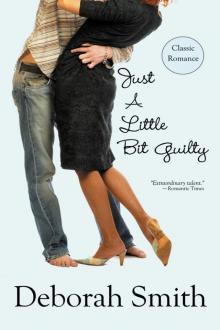 Just a Little Bit Guilty
Just a Little Bit Guilty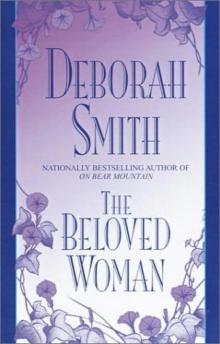 The Beloved Woman
The Beloved Woman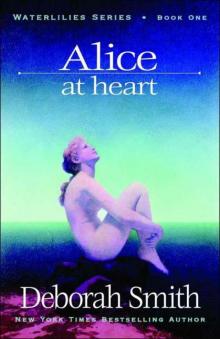 Alice At Heart
Alice At Heart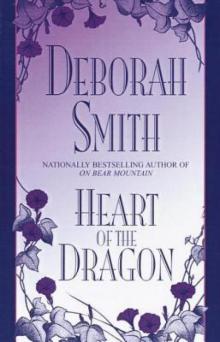 Heart of the Dragon
Heart of the Dragon Critters of Mossy Creek
Critters of Mossy Creek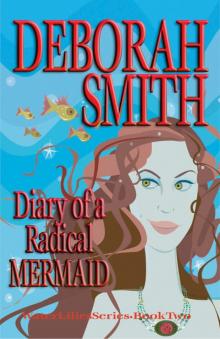 Diary of a Radical Mermaid
Diary of a Radical Mermaid Caught by Surprise
Caught by Surprise Stranger in Camelot
Stranger in Camelot At Home in Mossy Creek
At Home in Mossy Creek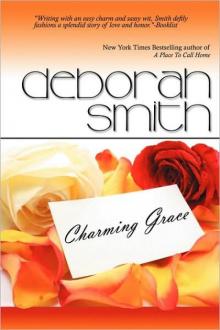 Charming Grace
Charming Grace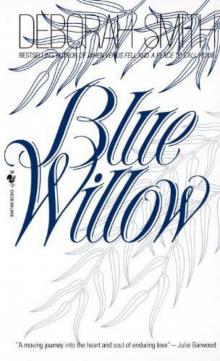 Blue Willow
Blue Willow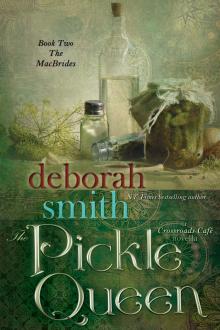 The Pickle Queen: A Crossroads Café Novella
The Pickle Queen: A Crossroads Café Novella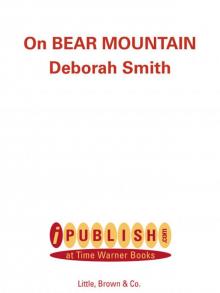 On Bear Mountain
On Bear Mountain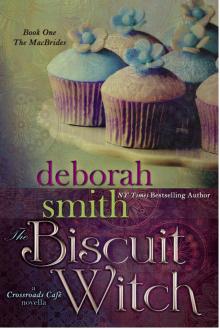 The Biscuit Witch
The Biscuit Witch Sara's Surprise
Sara's Surprise More Sweet Tea
More Sweet Tea The Apple Pie Knights
The Apple Pie Knights The Silver Fox and the Red-Hot Dove
The Silver Fox and the Red-Hot Dove Sweet Hush
Sweet Hush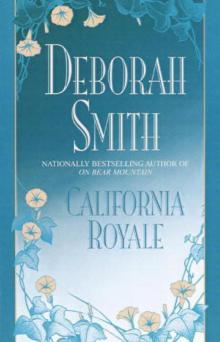 California Royale
California Royale Hot Touch
Hot Touch Miracle
Miracle The Stone Flower Garden
The Stone Flower Garden A Place to Call Home
A Place to Call Home Silk and Stone
Silk and Stone Honey and Smoke
Honey and Smoke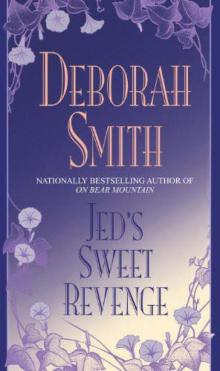 Jed's Sweet Revenge
Jed's Sweet Revenge Silver Fox and Red Hot Dove
Silver Fox and Red Hot Dove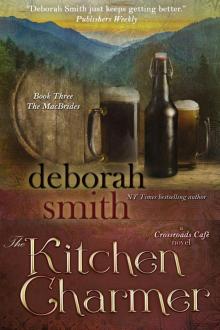 The Kitchen Charmer
The Kitchen Charmer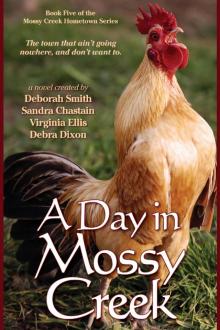 A Day in Mossy Creek
A Day in Mossy Creek Never Let Go
Never Let Go Summer in Mossy Creek
Summer in Mossy Creek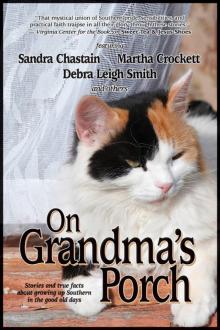 On Grandma's Porch
On Grandma's Porch The Crossroads Cafe
The Crossroads Cafe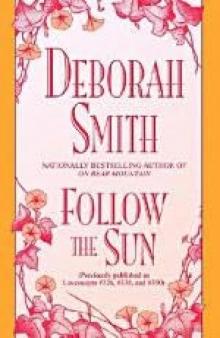 Follow the Sun
Follow the Sun The Yarn Spinner
The Yarn Spinner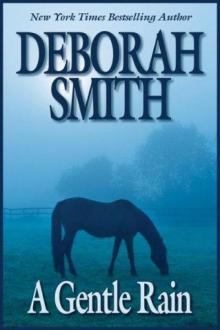 A Gentle Rain
A Gentle Rain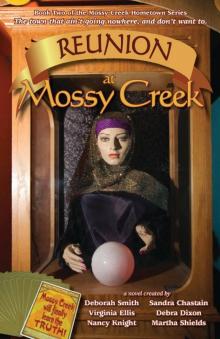 Reunion at Mossy Creek
Reunion at Mossy Creek